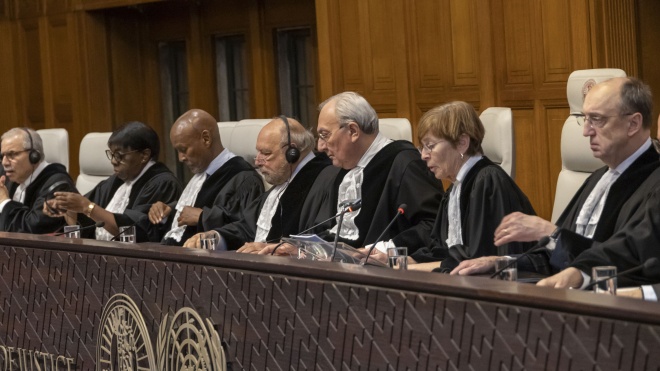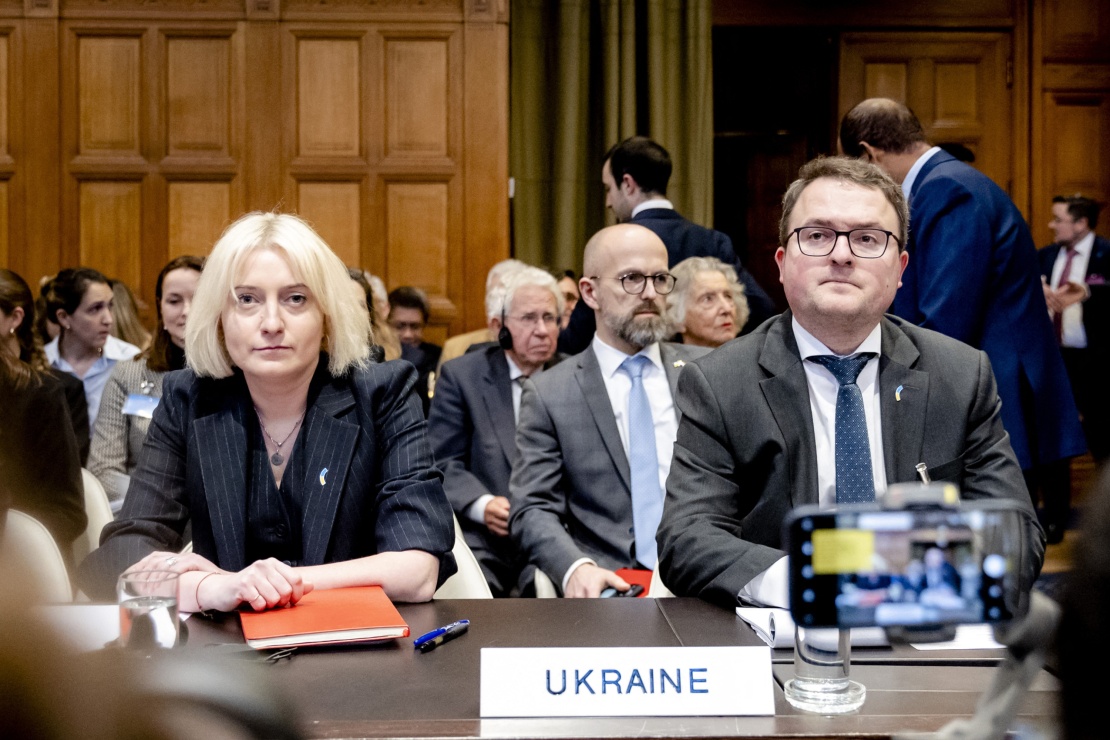What is this case and why is it important
According to international law, Russiaʼs attack on Ukraine is not a reason to complain to the UN International Court of Justice (UN ICJ). Only violations of the conventions signed by both parties are considered there, and in which there is an article stating that any disputes of the signatory countries are resolved by the UN court. The Convention on the Prevention of Genocide meets these requirements.
Ukraine proves that Russia abuses the concept of genocide when it explains its attack on Ukraine with the desire to protect people in Donbas. Ukraine also asks the court to recognize that it did not commit any genocide.
On March 16, 2022, the UN International Court of Justice ordered Russia to stop military operations in Ukraine until the merits of the case are considered. Russia was not at the hearing and ignored the decision.
Later, 32 signatory countries of the convention joined the Ukrainian lawsuit. They participate in the process and may formally express their opinions, but neither is a party to the dispute.
What exactly was Ukraine asking the court about
First of all, Ukraine asked the court to recognize that it can consider this case at all. Since Russia referred to the fact that Ukraine committed genocide in Donbas (which is not true), Ukraine asked to recognize the following:
- Ukraine did not violate the Convention on the Prevention of Genocide in Donbas and did not commit genocide there;
- Russia violated Articles I and IV of the Convention when it recognized the independence of the LPR and DPR on February 21, 2022;
- Russia violated the convention when it used force against Ukraine on February 24, 2022.
The logic of Ukrainian lawyers is as follows: the convention recognizes genocide as an international crime, and those who commit it must be punished, and no immunities can protect them. These provisions effectively prohibit one party from harming another under the guise of preventing or punishing genocide. Therefore, Ukraine believes that a state that is trying to prevent genocide should do so in good faith, exclusively according to international law, and not start a war. A full-scale Russian invasion and recognition of fictional "republics" is not an act of good faith, so it is a violation of the genocide convention. In addition, there was no actual genocide in Donbas.
According to the procedure, after Ukraine appealed to the court, Russia had the right to submit its objections — challenge the courtʼs jurisdiction or prove that the court cannot consider the case for some other reason. Russia filed such objections. At first, the positions were submitted in writing, and in September 2023 public hearings lasted for two weeks in The Hague. We described the arguments of the parties in detail and discussed them with the agent of Ukraine at the International Court of the United Nations Anton Korynevych. On February 2, 2024, the court finally ruled.
Agents of Ukraine at the UN International Court of Justice Anton Korynevych and Oksana Zolotaryova.
Getty Images / «Babel'»
What the court decided
Russia tried to convince the court that there was no real dispute because it did not know that Ukraine denied the accusation of genocide. And Ukraineʼs requests are simply not covered by the convention. Therefore, there is no need to consider Ukraineʼs lawsuit at all, and the court does not have such jurisdiction.
The court rejected most of Russiaʼs objections. But he agreed with one objection, which significantly changed the essence of the lawsuit itself. The court recognized that the issue of the independence of the "LPR" and "DPR" and the issue of a full-scale invasion do not fall under the scope of the convention. Therefore the court has no jurisdiction to consider them. According to the court, the logic of the Ukrainian lawyers was flawed, and the court simply cannot consider whether Russia violated the convention.
This automatically means that there remains only one question out of all that Ukraine asked for — whether it committed genocide in Donbas. And now the Ukrainian delegation will be forced to prove that Ukraine did not violate the convention. This actually makes the case against the Russian Federation a case against Ukraine.
What does Ukraineʼs agent at the UN International Court of Justice Anton Korynevych say about this
Anton Korynevych explained to Babel that the court will now really consider one issue — whether Ukraine committed genocide in Donbas. But it will be easy to prove that there was no genocide.
"Such a declarative decision of the court will be very valuable for us. Because it is taken on a banner, and we say: ʼLook, Russia talked about genocide as a reason for aggression, but there was no genocide. That is, Russia is lying.ʼ This may be necessary in other international courts, in particular for the future special tribunal on aggression," he says. And he adds that Ukraineʼs lawsuit itself was creative, and many international lawyers in the world supported such an approach, but the court chose a conservative approach.
Korynevych says that there is one more important point. Since the case is proceeding to consideration on the merits, the order on temporary measures remains in effect — Russia must immediately stop all military operations on the territory of Ukraine.
"That is, every day it [Russia] will violate the order. This can be a good basis for reparations. It [the order] would have been removed if the case had not been considered on its merits," he concludes.
What happens next
It is necessary to wait for consideration of the case on its merits. At first, the parties will submit their positions in writing, and then the court will hold public hearings.
Russian delegation.
Getty Images / «Babel'»

